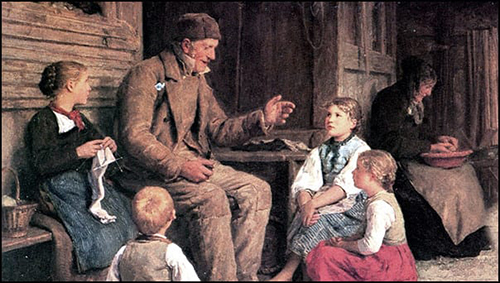
Imagine for a moment a classroom. A group of young children are sitting on the floor in a half circle. In front of them sits the teacher. The teacher has on their lap a book. The teacher opens the book and begins, “Once upon a time . .” and the children move quite perceptively to get more comfortable. For a moment, just a moment, you too may have been sitting on the floor!. Why do stories have such power?
Storytelling has always been at the heart of being human because it serves some of our most basic needs: passing along our traditions, confessing failings, healing wounds, engendering hope, strengthening our sense of community.
In her book “ O Pioneers” the American novelist Willa Cather, writes “There are only two or three human stories, and they go on repeating themselves as fiercely as if they had never happened before.”
Stories hold our truth; who we are as an individual, a family, a nation, a culture. We are forever telling stories; stories to enlighten, stories to remember, stories to invigorate and renew.
Stories are imaginative, of course, both in the telling and the hearing. But they also offer substance. The more we hear and the better we listen, the better sense we get of what life might be about, even why we are here.
To lose track of our stories is to be profoundly impoverished not only humanly but also spiritually.
In 2 days’ time we will tell a story – we call it Anzac day.
Our Gospel this Sunday is about story-telling (Lk. 24: 13 – 35). “what things?” asks the traveller who joins the two disciples on their walk to Emmaus, and so the story begins. . . .
